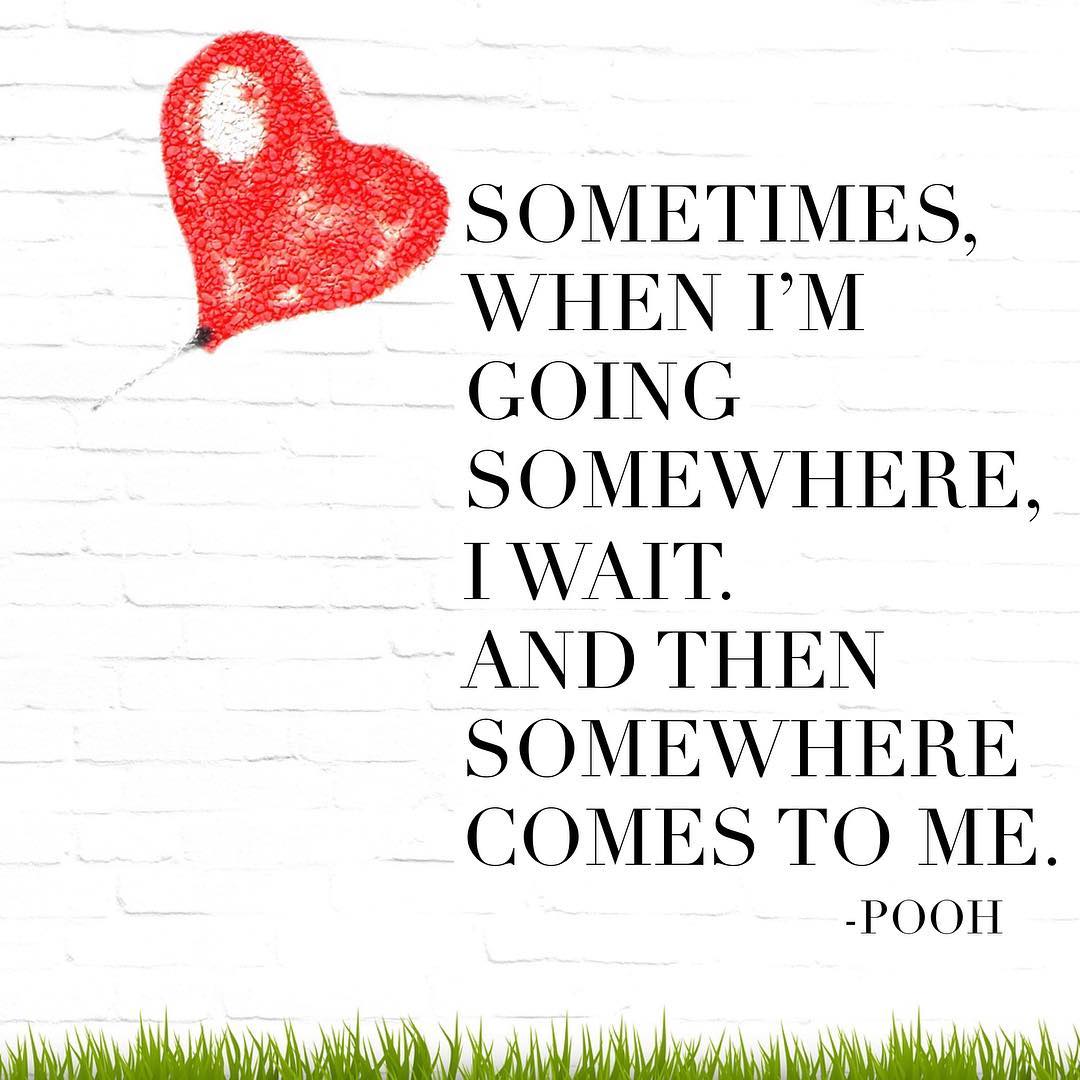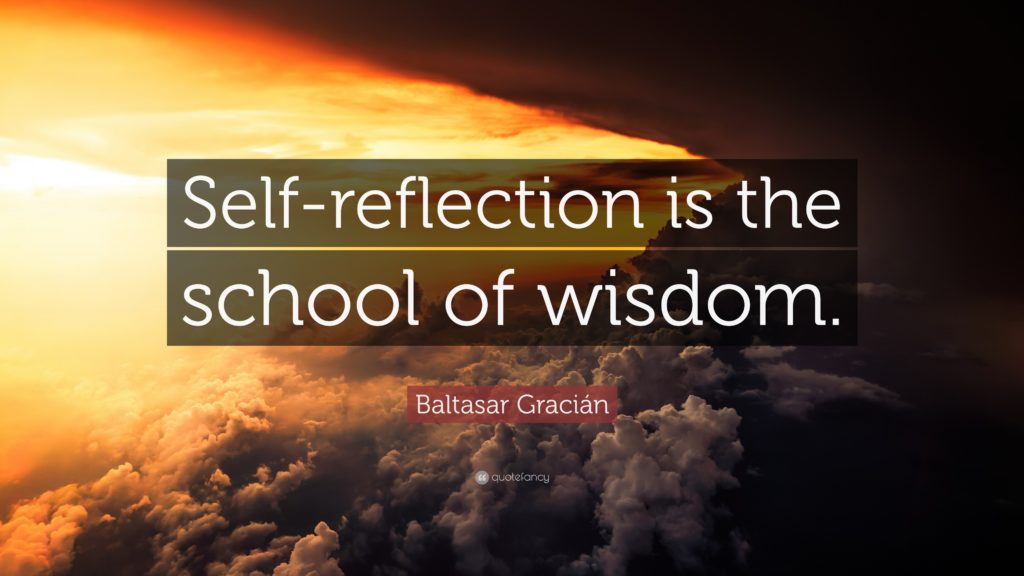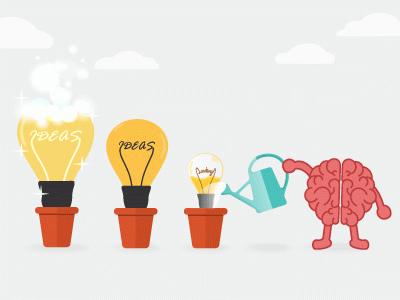
Self-reflection is the practice of deliberately paying attention to our thoughts, feelings and actions. Activities that allow you to engage in deep thought are the perfect portals that lead to this deeper dimension of living and experiencing the world. When you make time for self-reflection and develop a daily practice you’ll experience these four benefits. (Estimated reading time: 5-6 minutes)
“The unexamined life is not worth living.”
— Socrates
Before the internet, social media, radio, and TV, swept our would, people had more opportunity to ponder, dream and reflect on life’s big truths.
Ancient Greek philosophers roamed their white marble forums, lost deep in thought. Monks wandered in the wilderness in search of truth and enlightenment. Medieval writers penned their theories, philosophies, and stories in the privacy of candle-lit taverns.
Fast forward to modern times, and we find ourselves bound to the forces of consumerism. We’ve become slaves to the Lord of Commerce and the Siren of Materialism.
The typical modern-day worker finds himself working long hours, scraping just enough time together to have a life outside the office. Needless to say, making time for stillness, and simply being is considered a luxury, even prodigal.
However, this type of lifestyle has proven deadly. It has resulted in the rise of all kinds of mental health issues ranging from loneliness, depression, anxiety and obsessive-compulsive tendencies.

According to experts at Lantana Recovery, an outpatient addiction treatment center, these mental health issues are one of the major reasons why people develop drug addictions. This, in turn, leaves people feeling empty, fragmented, and lost in an ocean of uncertainty, without an anchor or safe harbor in sight.
People assuage their pain and melancholy in all kinds of ways. They resort to substances like smoking, alcohol, drugs, anti-anxiety pills, or engage in unhealthy habits such as overeating and being in codependent relationships.
While these coping mechanisms might provide temporary relief and enjoyable ‘highs’, in the end, they only make us feel worse. In fact, they’re useless because they only mask a problem instead of getting to the root of it.
The solution to some of the most vexing problems isn’t found in a bottle of pills, a roll of weed, or in a tub of Ben & Jerry’s. It’s found within us. In that calm and silent part of our being, where peace resides.
There might be chaos and conflict around us, but if we’re able to stand tall and steady during the storms, we’ll find shelter within our own inner sanctuary.

Humans are prone to living in different mental time zones. Frequently, we find ourselves dwelling in the past, unwilling to let go of painful memories, or we find ourselves worrying about imagined possibilities and all the things that could go wrong. When our awareness is not in the here and now, we find it hard to live in the moment and be still.
In his book, “A New Earth,” spiritual teacher Eckhart Tolle says that to end of our misery, we must start with ourselves and take responsibility for our inner state in any given moment. When we do that, our sense of self undergoes a shift. Instead of being present only in our thoughts, feelings and reactions, we become the observer who is aware and conscious of our inner state
Tolle says that until we engage in the reflection rooted in deep awareness, we’ll continue to identify with transient emotions and our ego-self. When we’re self-aware, we’ll no longer feel confused about who we are and where we’re going. In the moments of recognition, disidentification happens instantly, and we let go of superficial ways.
We don’t have to go off on a spiritual retreat in Asia to find that inner peace. We can experience it in any quiet space, whether that be at home or work. Developing a regular practice will give us the structure we need to immerse ourselves in self-reflection regularly.

Meditation, writing, nature walks, and anything else that soothes and gives you the space to engage in deep thought are the perfect portals that lead to this deeper dimension of living and experiencing.
Here are four reasons why it’s important to make time for self-reflection:
1. You make conscious and well-thought-out decisions: Making instantaneous decisions in emergencies is essential, but when we have the opportunity to deliberate before making a choice, we should take it. When we make decisions without giving them much consideration, we run the risk missing out on important details. Remember the last time you hurriedly said or did something? By reflecting on that, you’ll get a sense of the repercussions.
When we take time to reflect, we respond, rather than simply reacting in the heat of the moment. When you pause, your inner wisdom kicks in and allows you to see the full picture, increasing your chance of making a wise move.
2. You boost your creativity and innovation: It’s been well documented that luminaries from virtually every field—science, technology, the arts—have attested to the effectiveness of personal reflection. Artist Claude Monet said that we find our way through the strength of observation, and for that we must “dig and delve.”
Self-reflection gives us access to the deeper realms of thought and imagination from which brilliant and creative insights can emerge at any time. Those famous “eureka!” moments usually occur when we create the space and time to let them in.
3. You have an enriched perspective on yourself and your life: Life is ultimately an internal experience. No matter what circumstances we find ourselves in, the way we experience those happenings solely depends on how we interpret and process those experiences. Most people tend to look at what’s happening on the surface, but those who examine things on a deeper level tend to get the most of life. Their lives have more meaning, vibrancy, and purpose.
When you’re willing to step into this dimension of living, you’ll learn a lot about yourself and be open to seeing how you can improve and grow as a person. It’s almost impossible to grow, learn and find out who you are and what you’re here to do without self-reflection.
4. You deepen your understanding of the ways of the world: Without taking the time to reflect, the world may seem like a haphazard place full of paradoxes and complexities. While we can’t understand everything, we can glean some patterns and internalize certain truths that we experience. Textbook knowledge offer a template of understanding, but if you really want to develop wisdom, you have to make time to reflect, digest, and integrate. In this way, you’ll make abstract connections that you can use as a guide to pull from whenever you face similar situations in the future.
Whether you choose to devote your alone time to prayer, journaling, art, or simply dreaming, you can be sure that your experience of life is much more dynamic than those who don’t partake in any self-reflection. Instead of the gray and opaque lens that a materially driven person uses to view the world, you’ll be viewing everything through the colorful lens of a twisting kaleidoscope.
All my best on your journey,
Seline

Question for you: What are your favorite self-reflection practices? What are some changes you can making in your lifestyle to make more time for self-reflection?
Did you like this post? Sign up below, and I’ll send you more awesome posts like this every week.

Thank you for sharing this. There is a lot of great information in this blog, just like there are in most of your pieces that I have read. Thank you for being open and willing to share the hard facts and the things that need to be said. We dont always want to hear them or apply them but it is good to know someone is here to make them known none the less.